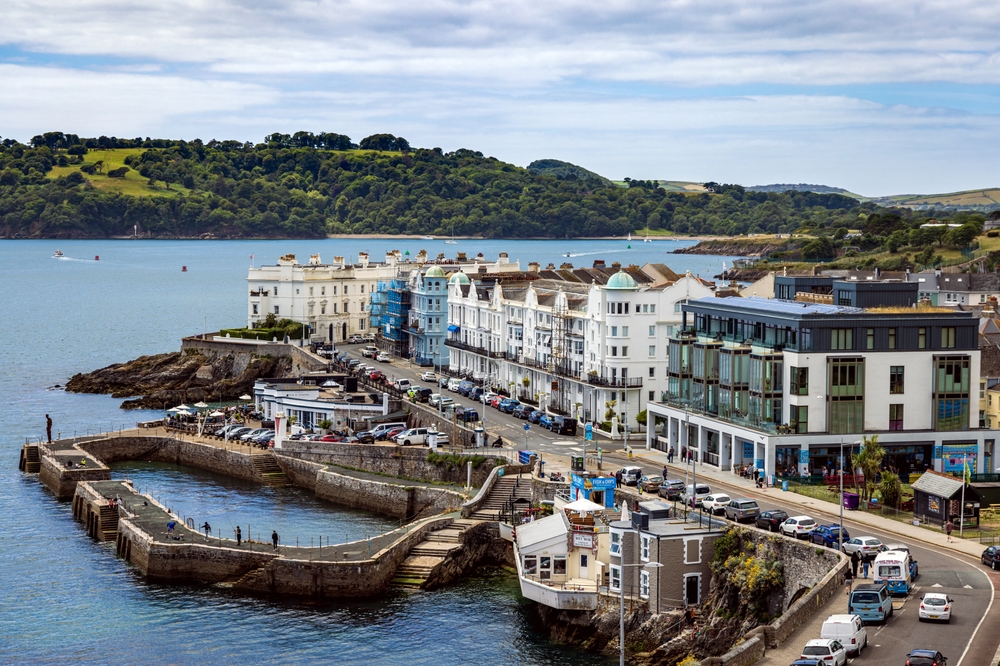Location Overview – Plymouth is a city in Devon, the largest city on England’s south coast, located at the southwest corner of Devon. Plymouth lies approximately 190 miles southwest of London and is where the rivers Plym and the Tamar flow into Plymouth Sound, creating a natural harbour. Plymouth’s principal access route from the East and the West is the A38 dual carriageway, which runs through the city (the Devon Expressway). It connects to the M5 at Exeter for onward journeys and into the heart of Cornwall to the west.

Driver Training Options:
Our driving courses are always tailored to the individual driver’s needs, whether for private or business drivers. Our courses range from general, advanced, and defensive driving courses to specialist sessions to help a driver with confidence, motorway, post-RTC training, and pre-court or speed awareness.
Here is a list of our courses available in Plymouth:
* Confidence training
* General advanced and defensive training
* Post road traffic collision (RTC) training
* Van driver training
* Motorhome confidence and familiarisation
* Courses for younger drivers
* High-performance driving courses
* Pre-court advanced training
* Mature driver training
While every course is unique to the driver, below are some of the key areas we help with:
* Reviewing past driving experience and how that’s impacting (positively or negatively) the client’s approach to driving
* Forward planning and observation
* Developing a positive mindset for driving
* Identifying and ironing out any at-risk habits
* How to use speed safely
* Being aware of the impact of excessive speed
* Understanding better and anticipating the actions of other road users
* Creating a positive learning environment on motorways, rural and urban settings.
* Learning commentary driving for improving your skills of forward planning and observations.
Your specific course may only last a half day, a full day or several half days. However, the skills you learn will make you a better driver for life.
The report we send for each driver reviews their driving and provides valuable hints and tips for the future. So you can refer back to the report time and again, each report is assigned its own unique verification number, so anyone reading it can trust its integrity as a genuine, original report – this is especially important if you have been asked to do the training from an external party such as an insurer or employer.
There are many benefits of taking driver training with Drivers Domain UK:
* Bespoke training based on a driver’s specific needs
* Personal account manager
* Handpicked fleet/advanced tutors who are all registered with the Driver & Vehicle Standards Agency
* Detailed reporting for each driver – with notes from the tutor who provided the training
* National coverage
* We come to you for the training
* Full and half-day options
* A training is on-road
Our friendly and expert tutors will come to you and take you out on the road in your own car, van, or even campervans and motorhomes.

Half or Full Day?
The half-day is ideal for those with many drivers to train and want to take advantage of the time and cost savings associated with such. The full day is perfect for drivers who wish to experience an intensive advanced driving course and want to iron out any bad habits.
We tend to find many clients opt for the full-day session – and book one driver for the morning session and one for the afternoon session – there is no additional charge for this.
When we train drivers, we look at building the course around their specific needs. We initially let them drive for a short period. Then after a friendly debrief, we introduce several advanced driving techniques such as forward planning, car control, advanced observation, and much more.
The main part of the course is designed to improve the driver – and we find the best approach here is to work on their specific driving style and requirements and adjust the training to fit their needs.
Talk with us:
While we cover as many things as possible on this page, we understand you may still have questions. Please call or email us if you wish to discuss anything. A member of our team will only be too pleased to help you. We can help both private individuals and business clients.
If you’re looking at a quote for a large number of drivers, we will be able to do one quickly, along with how we can best approach the training based on your business needs. Training large numbers requires a little extra planning. Still, we have many years of experience in large and, often, complex driver training sessions, which involve multiple start locations and hectic diaries.
During our driving courses in Plymouth, we cover as many roads as possible. Below are just a few of these:
A38 (Devon Expressway) – This major dual carriageway connects Plymouth to Exeter and the rest of the M5 motorway, and it is one of the busiest routes in the area. It passes through the city and is particularly congested during rush hours, as it serves both local commuters and long-distance traffic.
A379 – Running along the coastline, the A379 connects Plymouth to the surrounding towns and villages. It can become quite busy, especially in areas like the city center and around the junctions leading to key local attractions.
A386 – This road runs from Plymouth to Tavistock and is another busy route, particularly during rush hours, as it connects residential areas to the city center. It is a primary route for those traveling to and from the northern parts of the city.
North Road West – Serving as a key road through the northern part of the city, North Road West can be quite congested, particularly around the city center and near key commercial and residential areas.
Royal Parade – Located in the city center, this road is frequently busy with both traffic and pedestrians, particularly during shopping hours and rush periods. It is one of the main arteries through Plymouth’s city center.
The Hoe Road – While it’s a scenic route near Plymouth’s waterfront, it also experiences heavy traffic due to its proximity to popular attractions like the Hoe, the Barbican, and the Plymouth city centre.
B3234 (Torpoint Ferry Road) – This road leads to the Torpoint Ferry, which connects Plymouth to the town of Torpoint. It is busy, especially during peak times, with traffic moving towards and from the ferry terminal.
Road Safety Risks and Information – Plymouth
Plymouth is located in the southwest of Devon on the River Tamar and the coast. It is served by several fast A road routes, including the A38 and the A386. At the Manadon Roundabout, both of these routes link, and the A386 merges into Outland Road, travelling south into the centre of Plymouth, and the A38, Devon Express Way, continues along to Cornwall from Exeter.
Outland Road, A386, becomes Alma Road and also links the A3064 from Devonport at the large traffic light system, and there are several severe and life-changing collisions noted here. It is very important to have good observation skills when crossing such busy areas and to be aware of other drivers’ intentions, as being able to hold back when you see hesitant drivers can make a difference in avoiding needless collisions. Alma Road continues to Pennycomequick Roundabout and meets the Saltash Road and the North Cross roundabout that links to the retail centre of Plymouth along the Western Approach, A374 and Cobourg Street along the eastern side. Accidents along these routes are not just common; they are often severe, and during rush hours, these areas can be very congested. Especially the route from Stonehouse and along Union Street. This is an especially busy road with many commercial, retail and residential areas, and although speed limits are low, some collisions are very severe and involve cyclists and pedestrians. This route is also shared with busses, making forward observations difficult at times, but it is vital that you do not pull out to overtake a bus unless you are absolutely sure the way is clear, as many passengers will alight the bus and try to cross in front of it.
Union Street continues across the Derry’s Cross Roundabout and merges into Royal Parade, where collision rates are still very high. Driving in urban inner-city areas requires much concentration and calm, and it is important to be clear in your intentions with timely indications and clear observations, and importantly, not to be pressured by other drivers just because they are in a hurry. The B3240 travels along the Barbican and Notte Street, this is another route that has very high collision rates especially near road crossings and traffic lights, especially between Princess Way and St Andrews Street. This route joins Vauxhall Street and links to the A374 Exeter Road, linking back to Cobourg Street. These routes are busy with commuters and delivery drivers, especially during the day, and often, collisions can cause added congestion and diversions, which in turn can lead to further issues.
If you have any specific roads you travel on in the area and you’re keen to discover what parts are at higher risk in terms of collisions, please don’t hesitate to contact us. We are here to provide a free-of-charge service to anyone who is interested in ensuring their safety on the roads of Plymouth.
